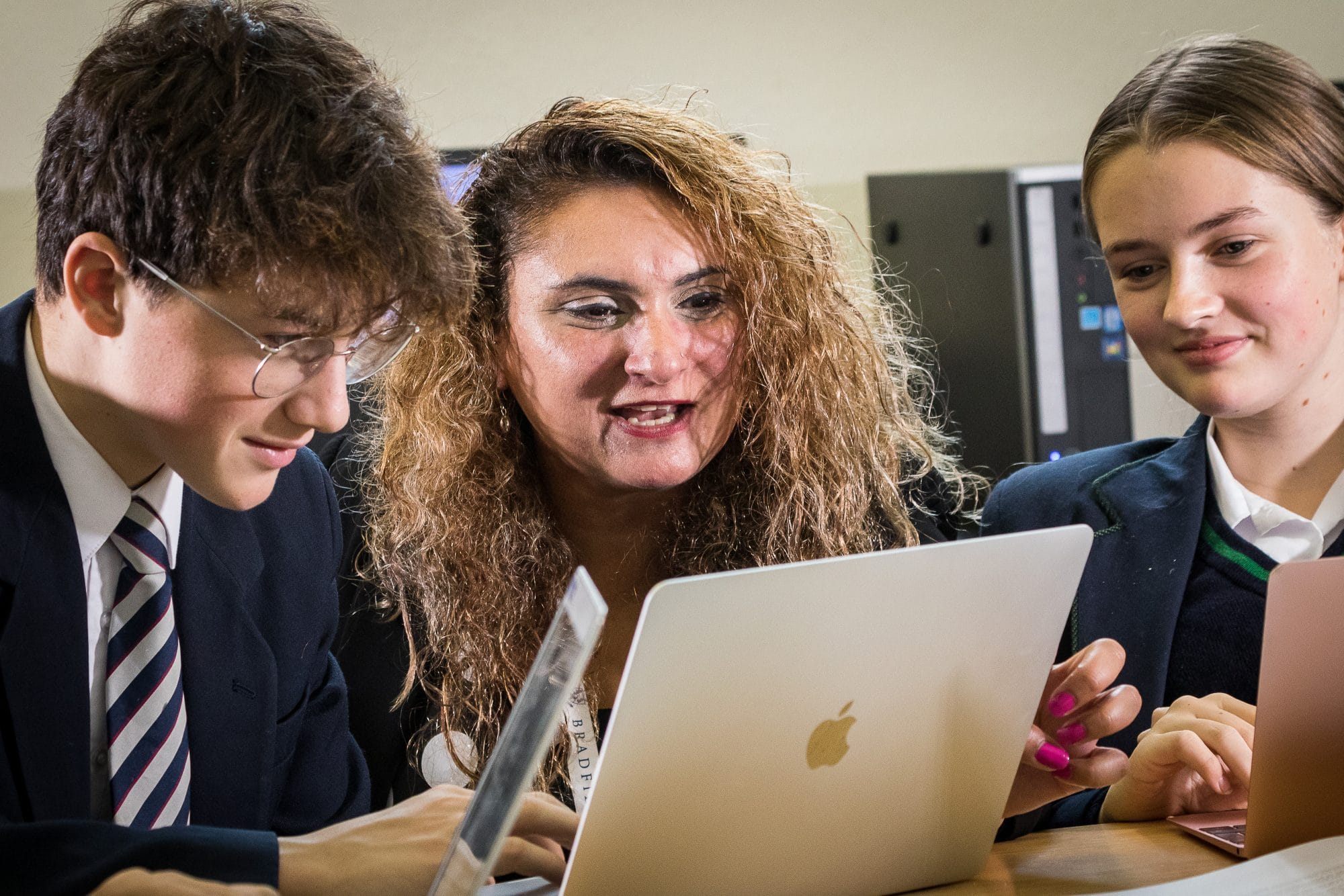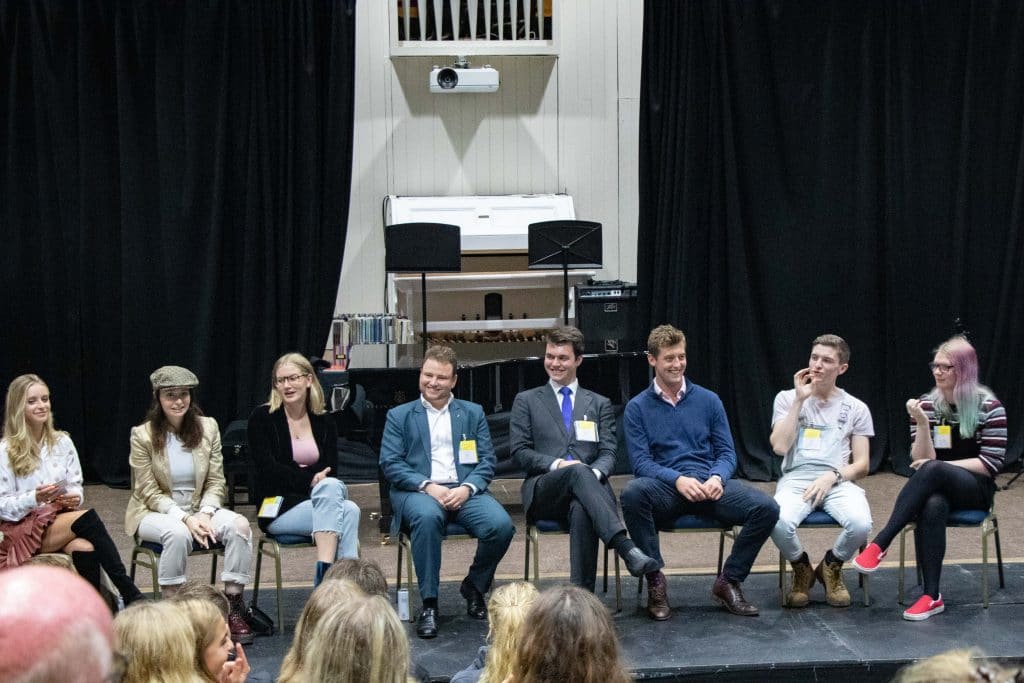DIGITAL LITERACY IS INGRAINED IN ACADEMIC LIFE.
For many of our pupils, the journey of learning key technological abilities begins in Faulkner’s, where digital literacy is ingrained in academic life. The Department, with its dedicated Computer Science teachers, provides every Year 9 pupil with a range of essential skills which they can implement throughout their time here. We help pupils get their heads around using technology to stay organised as they plan for their GCSE studies, show them how to utilise devices and software to their advantage in their academic subjects and help them understand how to stay safe online and use the internet in a responsible manner.
We are experiencing a growth in occupations where workers use digital skills creatively and to solve problems. Research that forms part of the government’s call to action shows that future workforces will need vital skills in information and data literacy, communication and collaboration, content creation, safety and identity, all of which feature within the GCSE and A Level courses.
Staples of the technological world including algorithms, cyber security, coding and software development are coupled with forward thinking topics on the syllabus with studies in the ethical, legal and environmental impacts of digital technology on wider society. We also hope to inspire creativity as we begin a partnership with the School of Coding, who will be introducing our Faulkner’s pupils to the worlds of Virtual Reality and Robotics.
A TECHNOLOGICAL EDUCATION IS ESSENTIAL IN PROVIDING THE TRANSFERABLE SKILLS TO THRIVE.
We are preparing our pupils for a world of work in which they are likely to experience multiple careers across multiple sectors and a technological education is essential in providing them with the transferable skills to thrive in that environment. There is a focus on non-technical employability skills, particularly interpersonal qualities, cognitive competencies and learning strategies, traits which form the bedrock of a Bradfield education.
That shifting landscape is something I have experienced in my own career which began in Science before transitioning to Computing during the tech boom in the 90s and again in my teaching career when we shifted from ICT to Computing in 2012. That year I introduced GCSE Computing to 11 pupils at my school, a class with mixed ability and gender and all of whom had no prior knowledge of the subject. At the end of the two years, all of them achieved between A* and C grades and all went on to study Computing at A Level, success and continuity which I am looking forward to replicating here.
Being at a co-educational school means we also have an opportunity to address the gender gap in the technology sector. A recent PwC study of 2,000 A Level and university students shows that the gender gap begins in schools with only 3% of female respondents stating they would consider a technology career compared to 61% of males asked the same question. Just 5% of leadership positions worldwide are held by women. One pupil who really stood out for me in my first group of GCSE pupils was Amrita. After achieving A* at both GCSE and A Level she went on to study Computer Science at Cambridge University and is currently experiencing the wider technology world as she studies for a Masters at KTH Royal Institute of Technology in Stockholm. It is that outward-looking, global mindset which we are looking to instil in our pupils at Bradfield and we hope to offer our Computer Science pupils the chance to visit places like Berlin and Silicon Valley to see how the subject applies tothe real world.
We hope to continue to see the recent growth in numbers of all pupils, and particularly in girls, studying Computer Science at Bradfield. I certainly hope that the future trip to Silicon Valley will inform and inspire a new generation of tech workers, who will build on the foundations from their own education for life.






